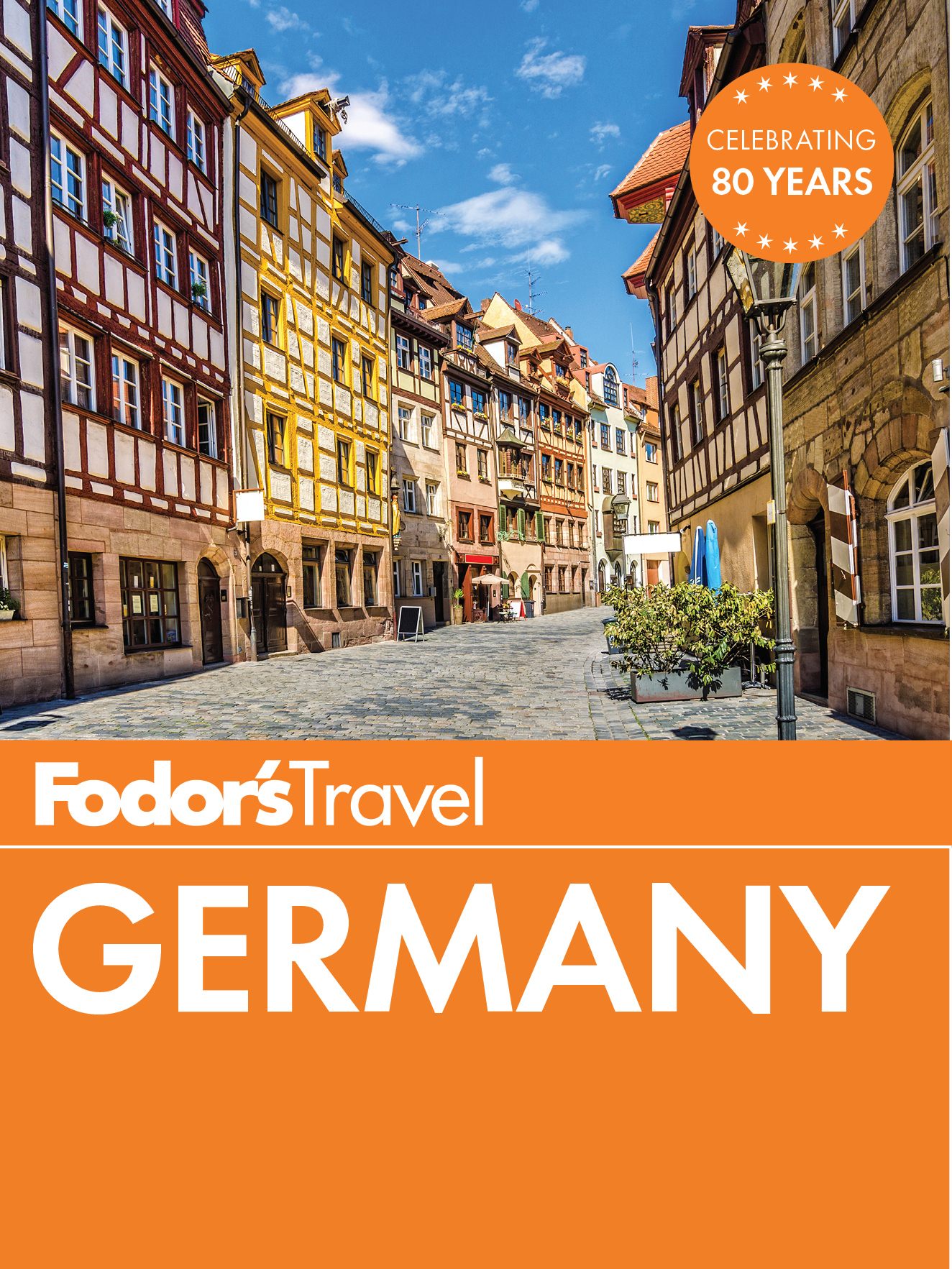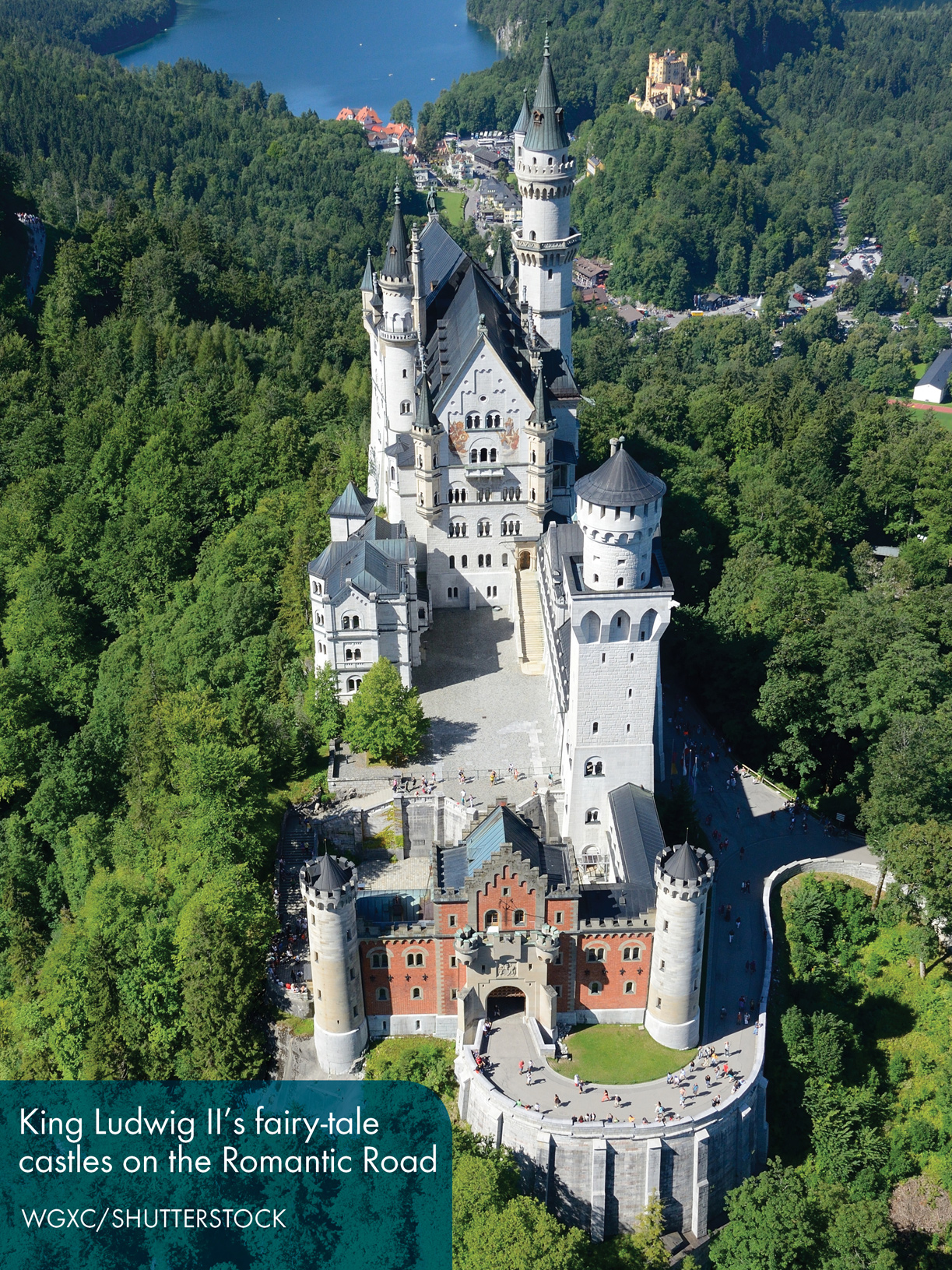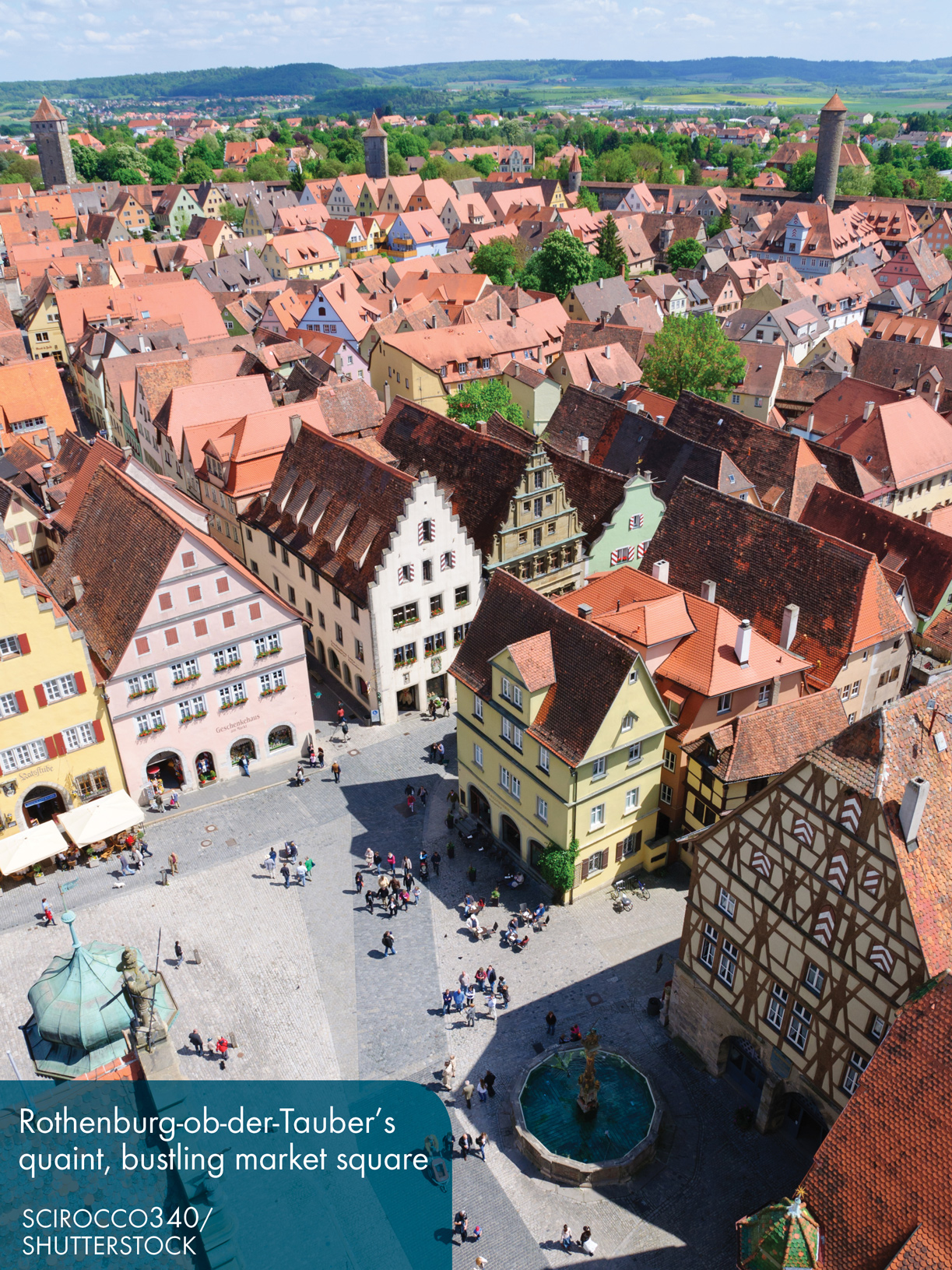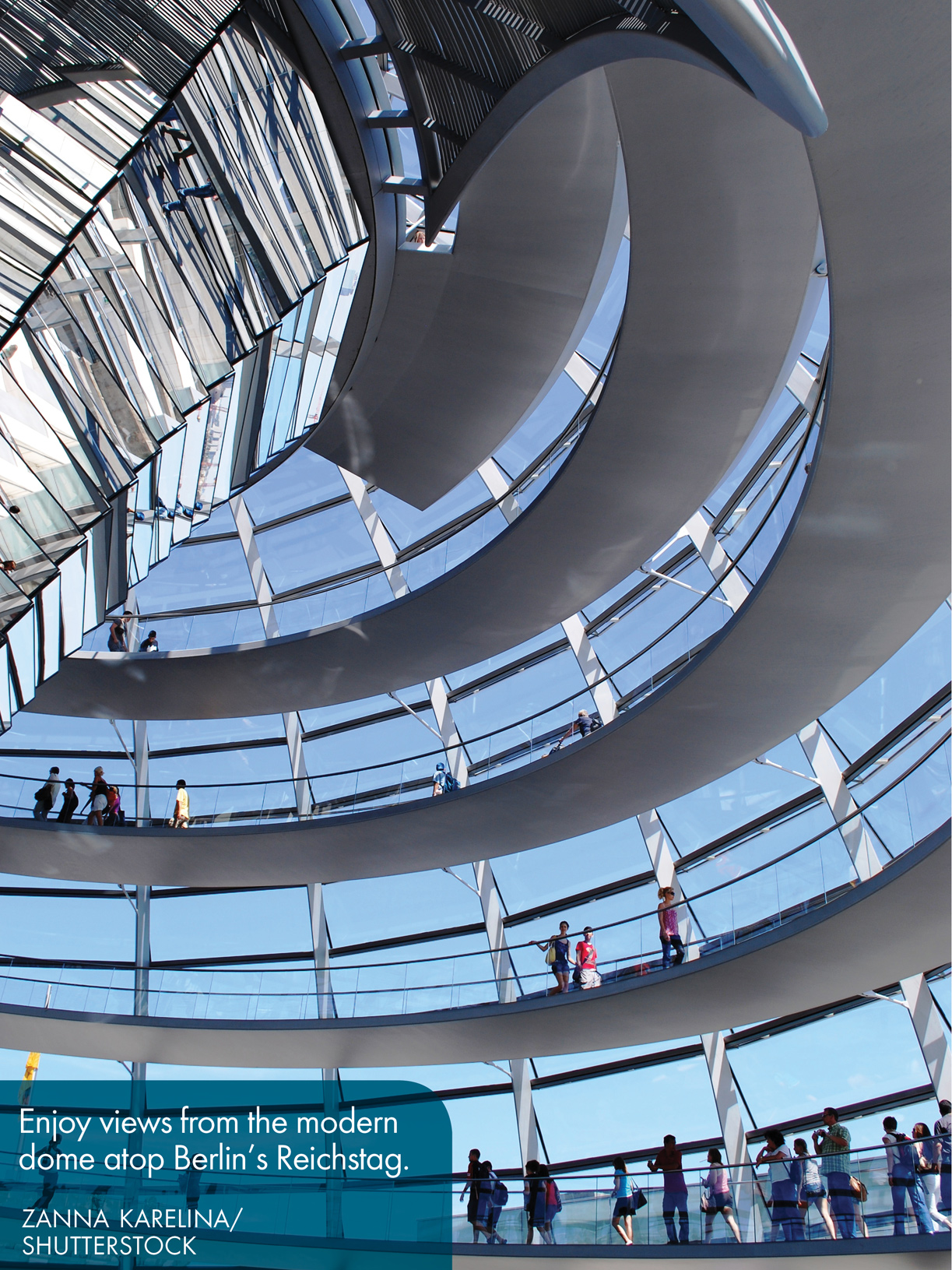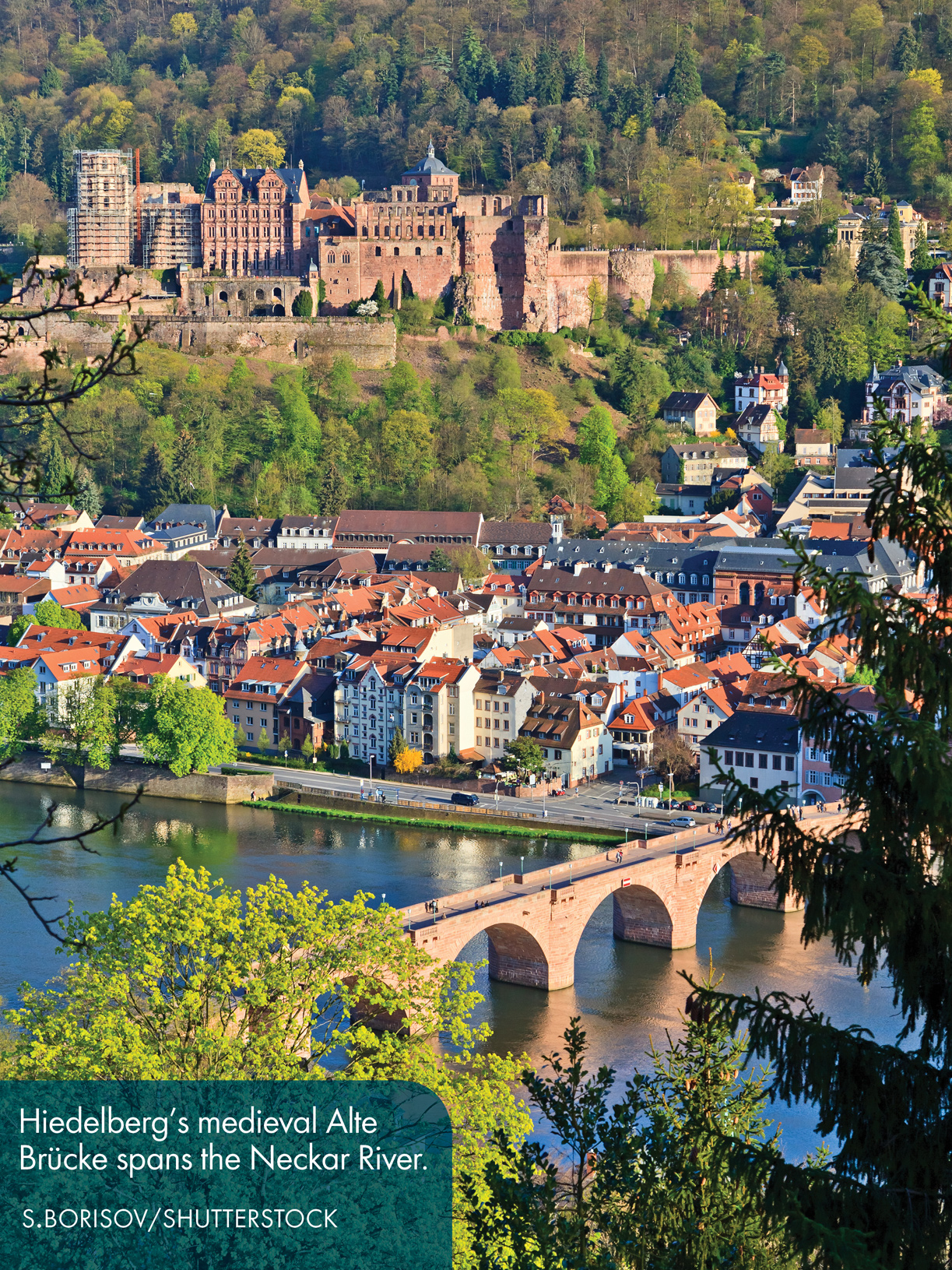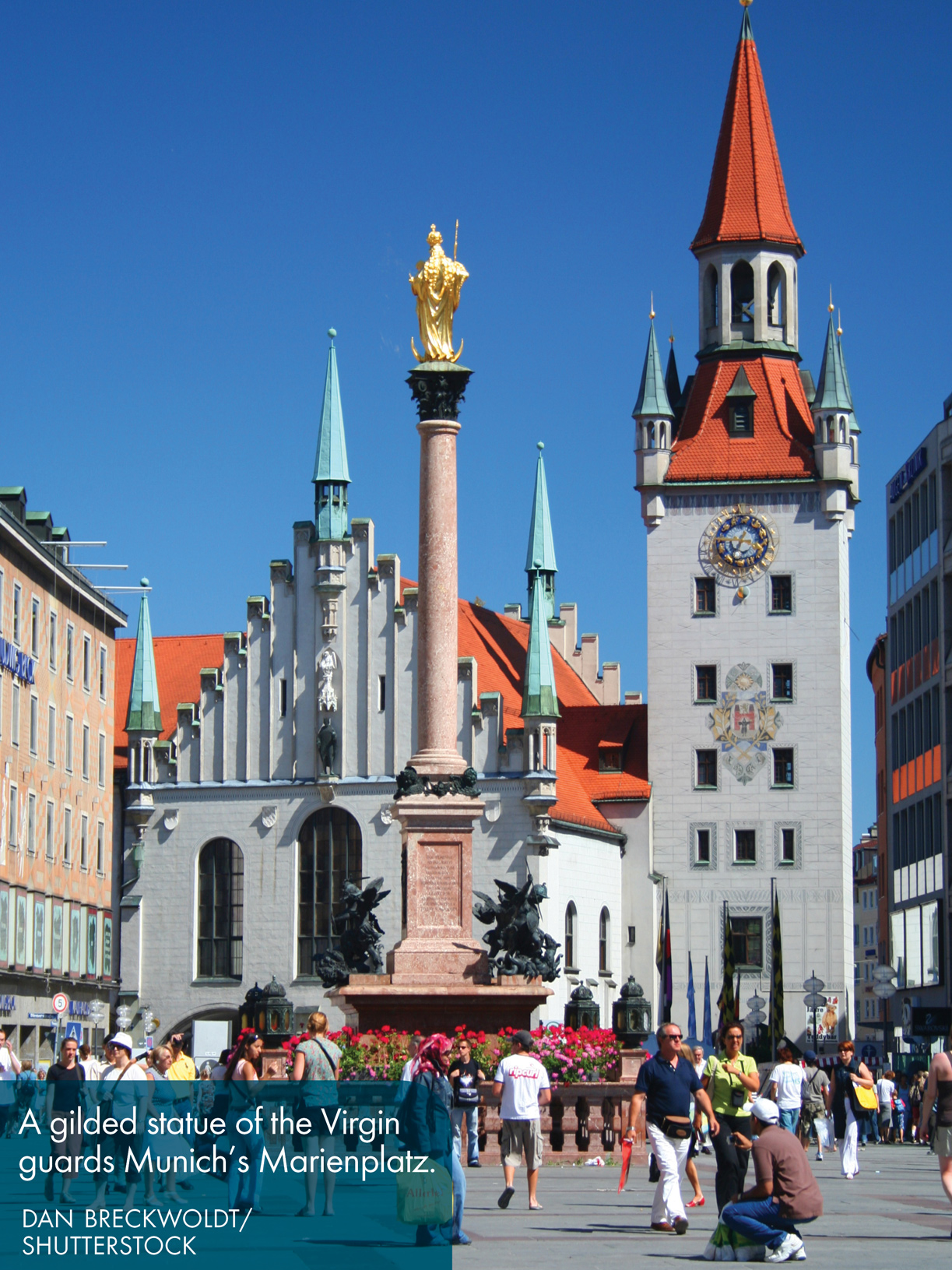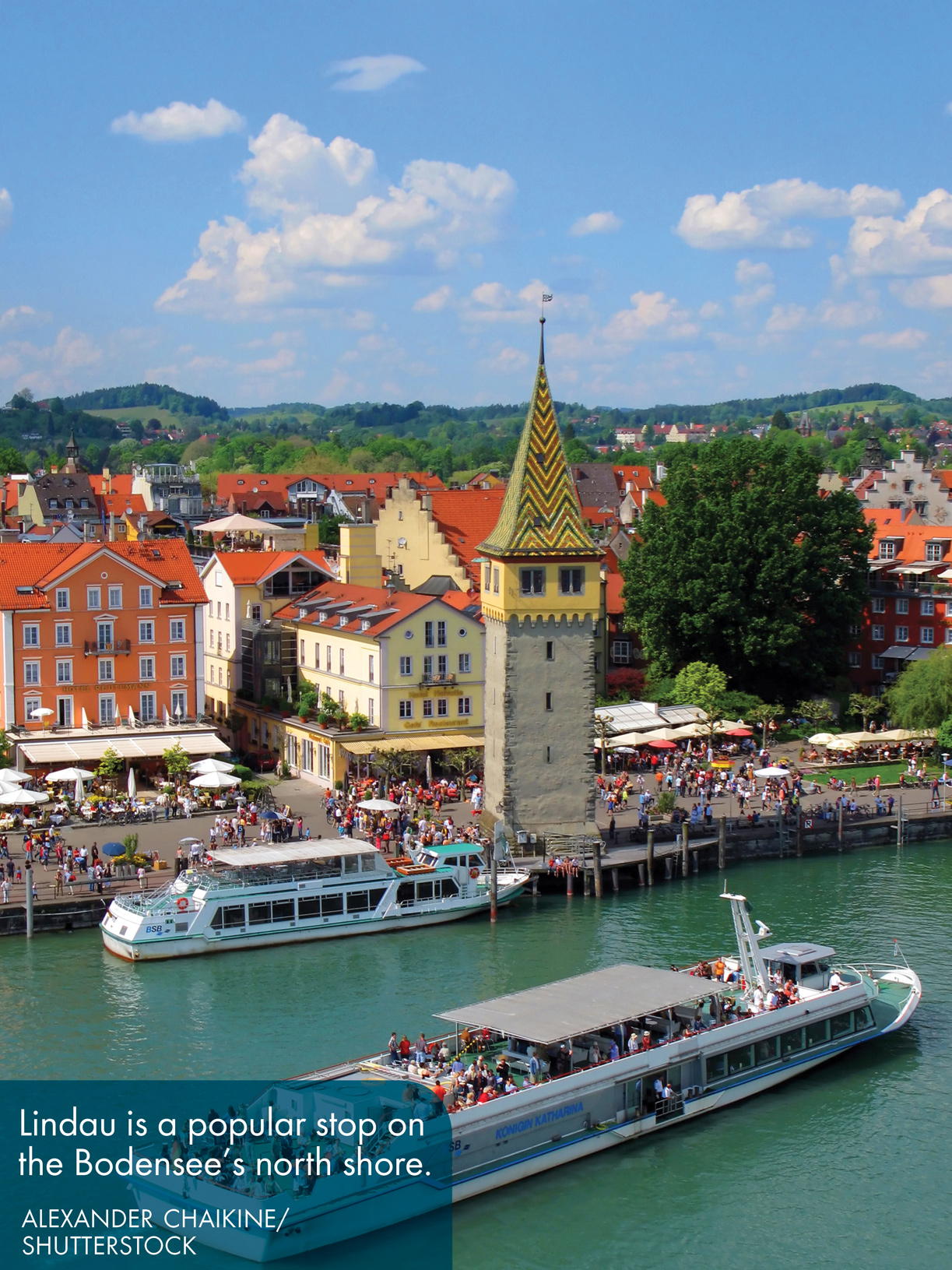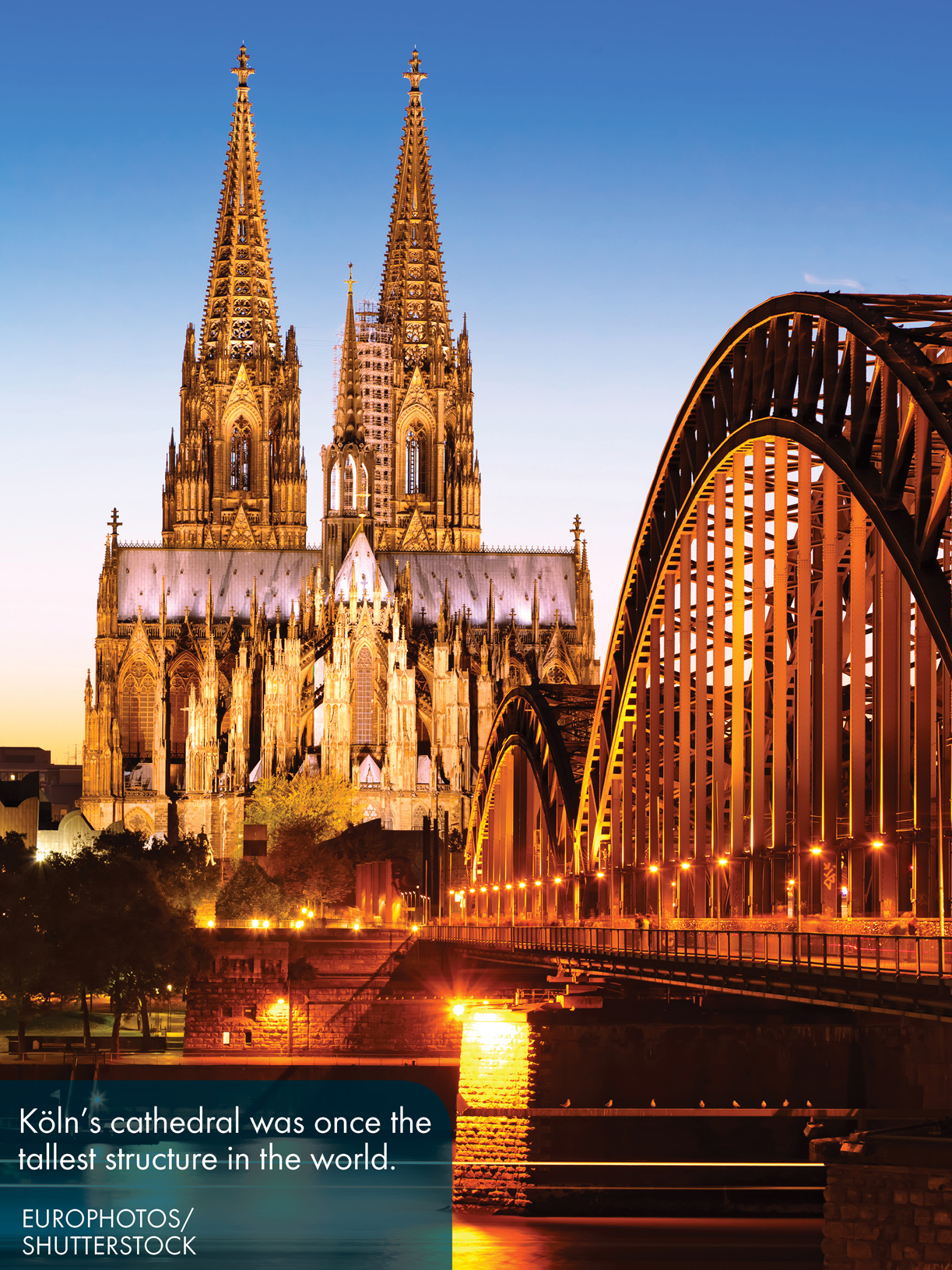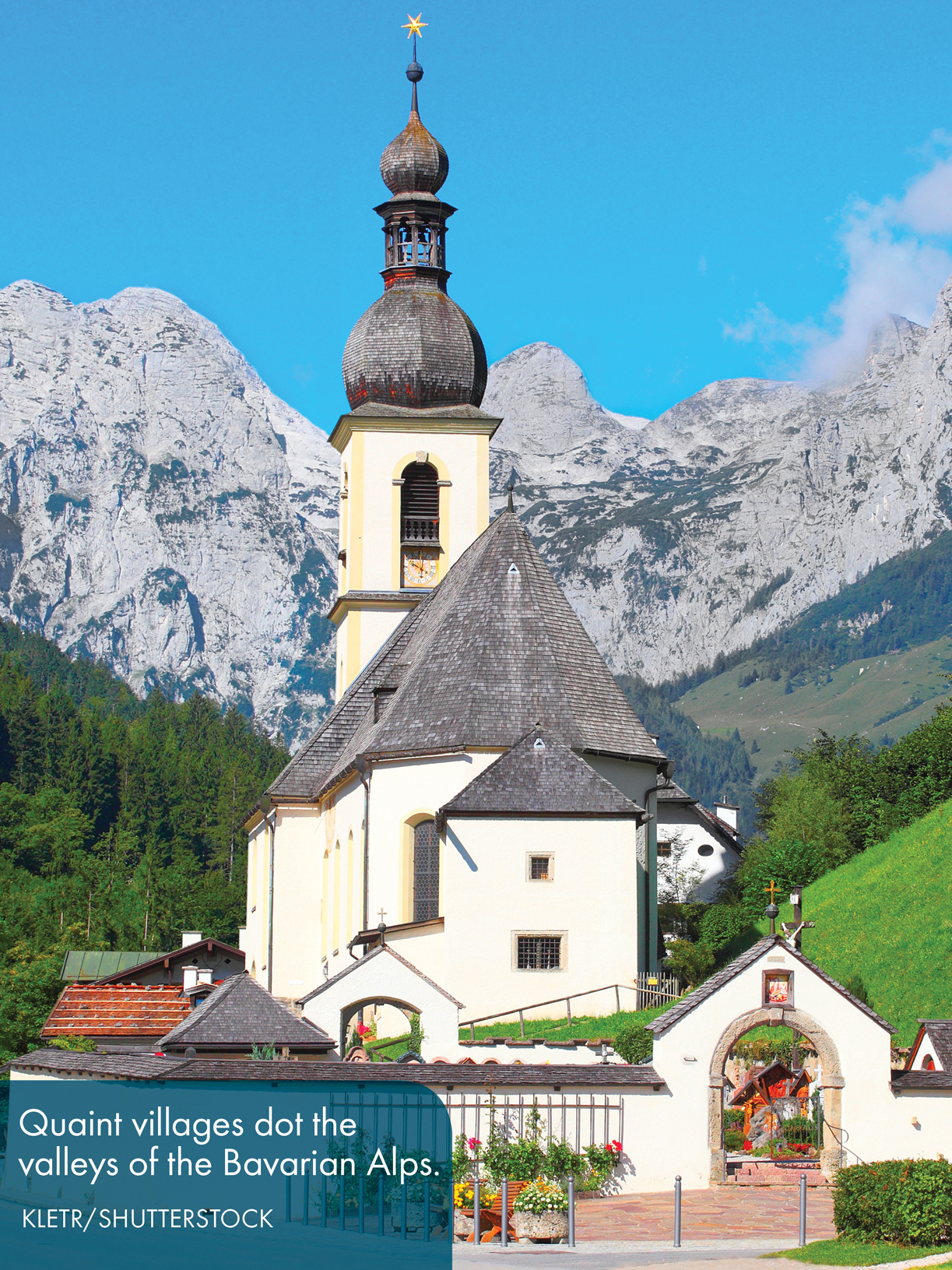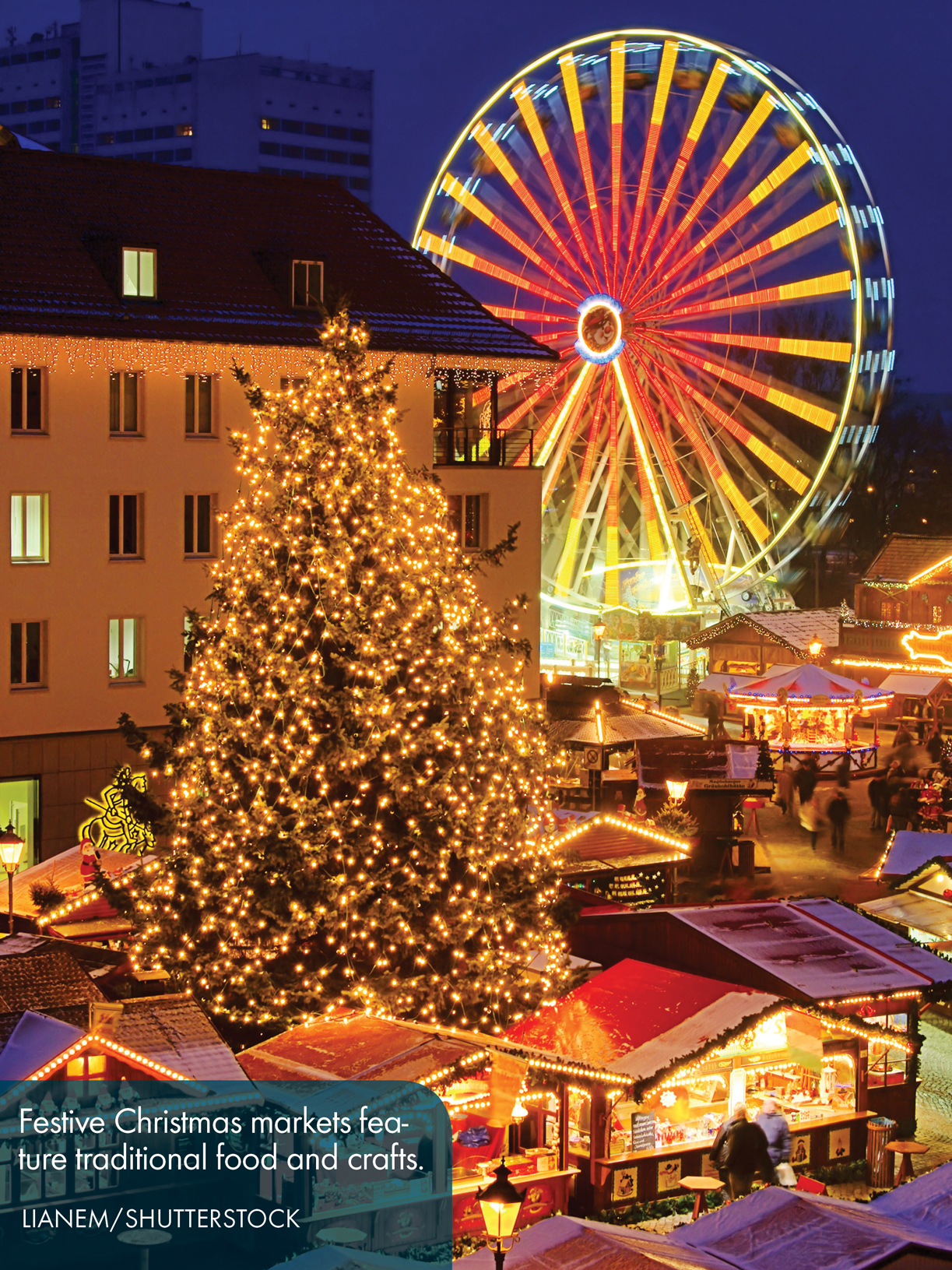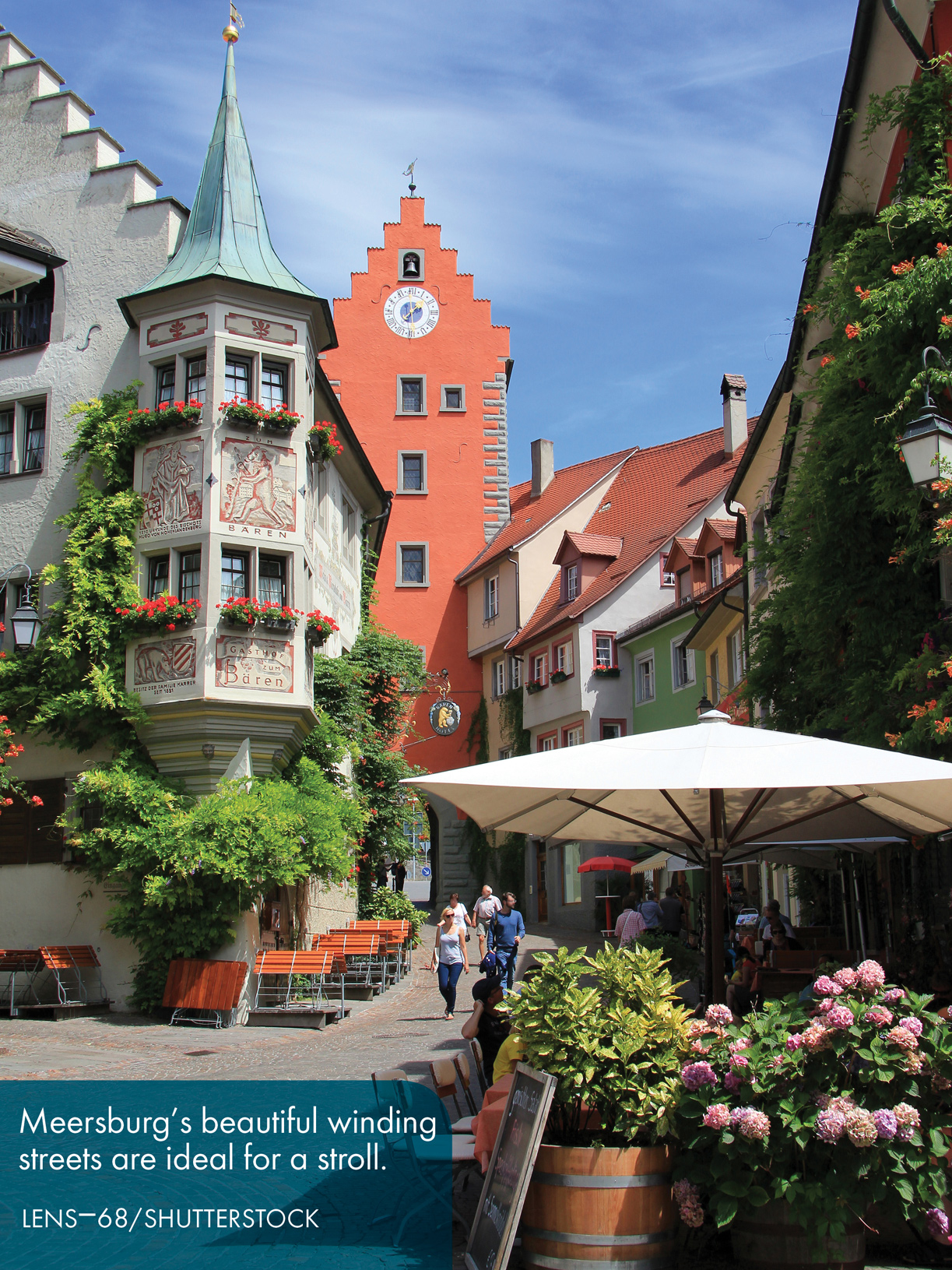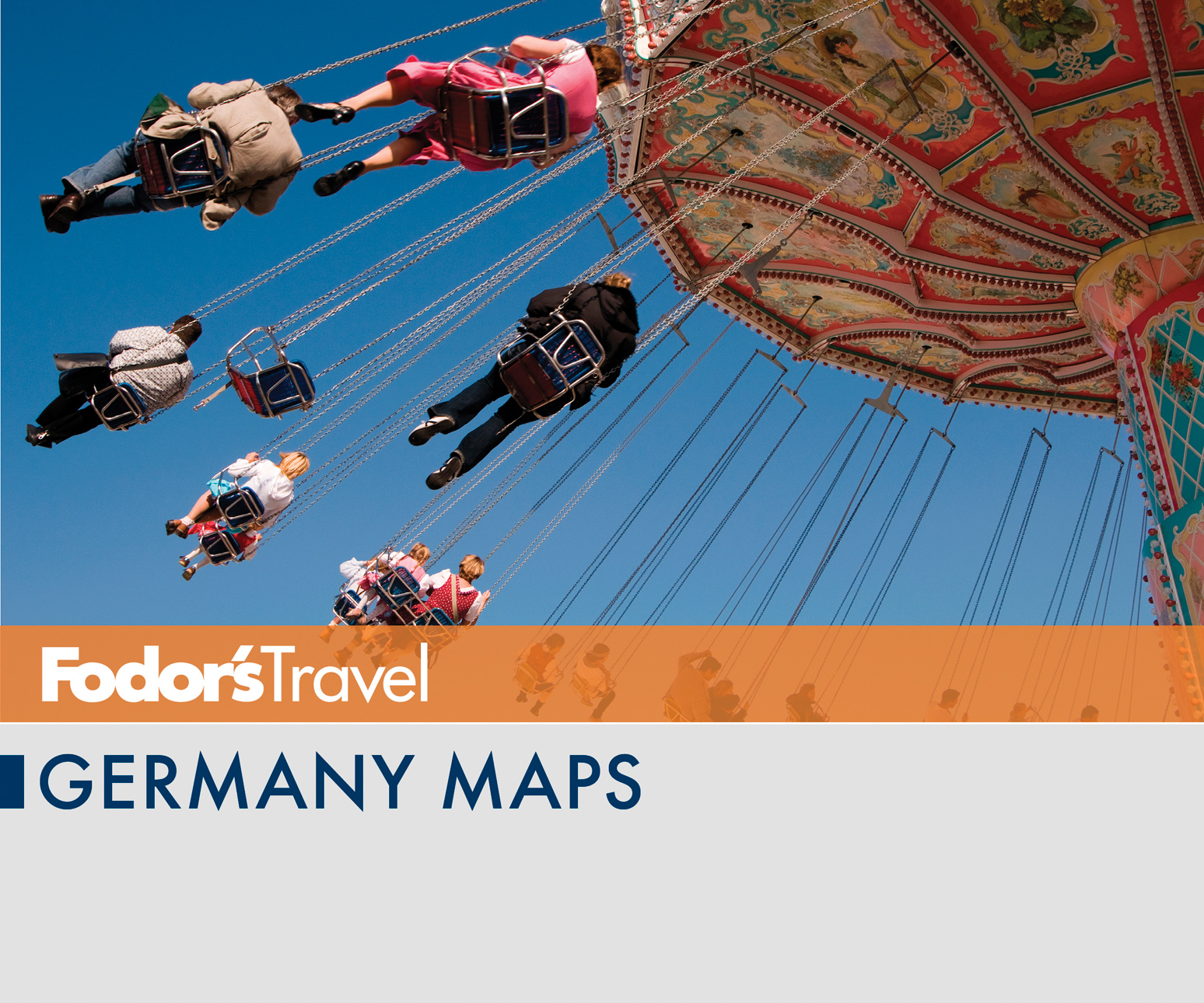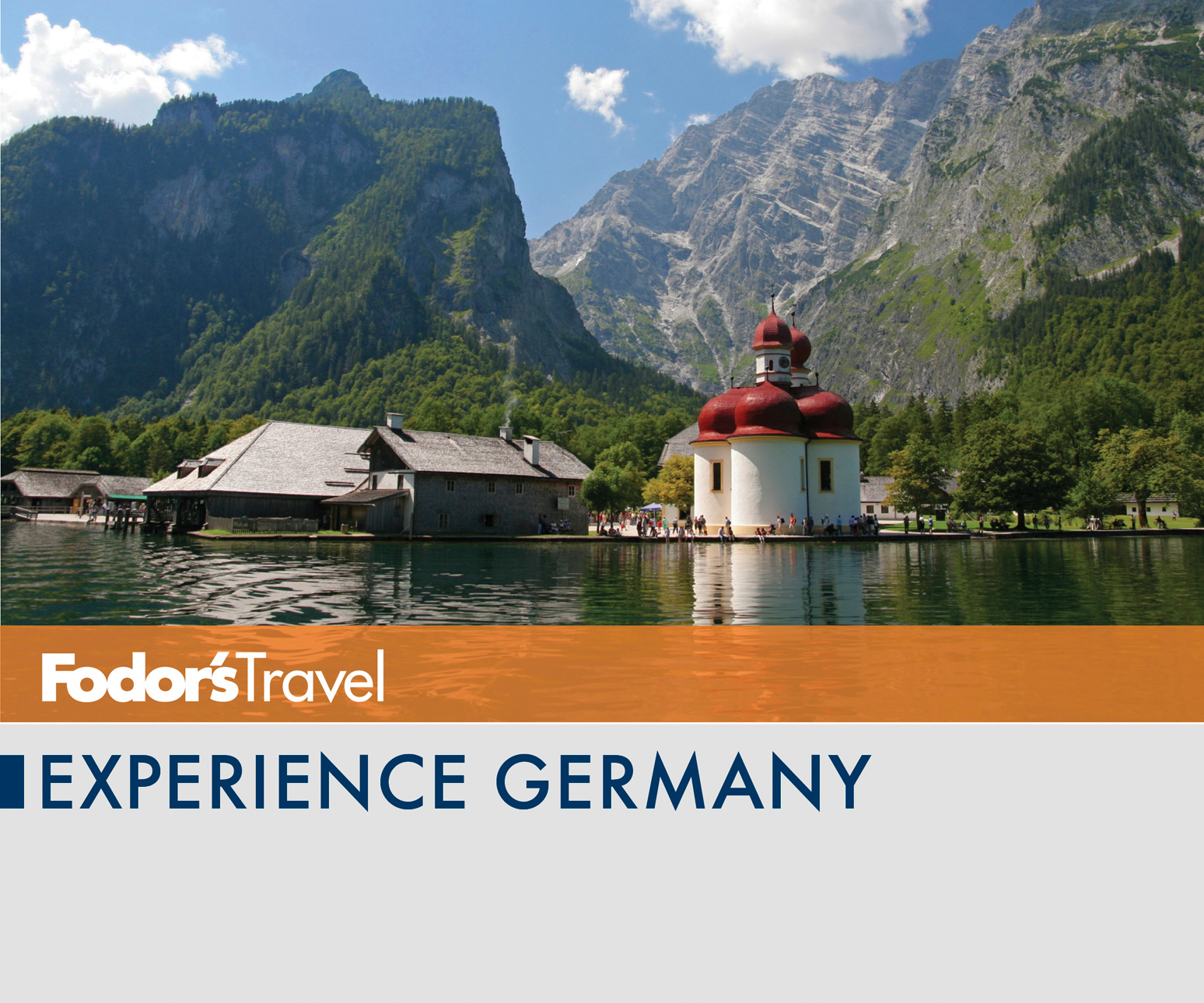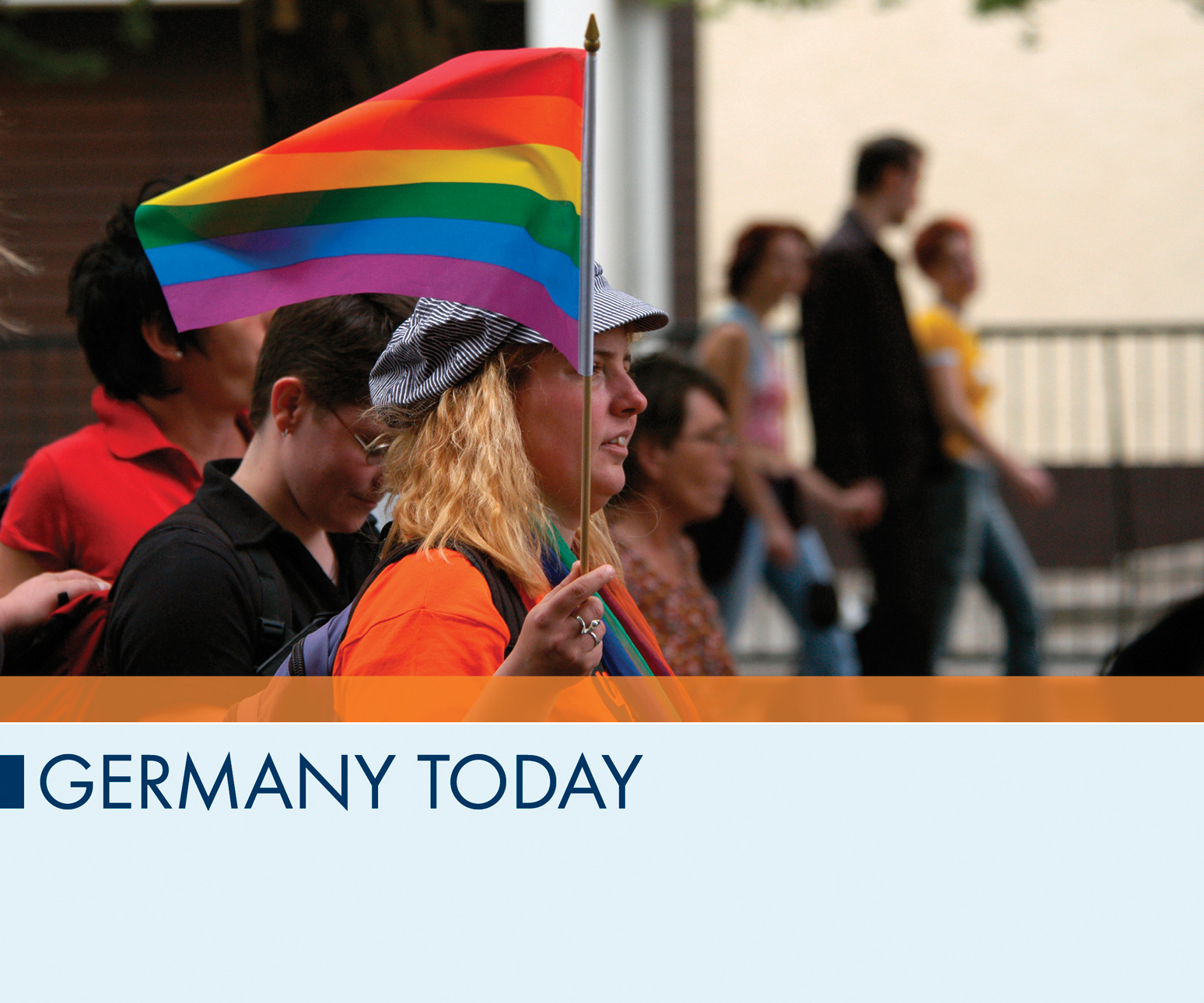Munich
Bavarian Alps
The Romantic Road
Franconia and the German Danube
The Bodensee
The Black Forest
Heidelberg and the Neckar Valley
Frankfurt
The Pfalz and Rhine Terrace
The Rhineland
The Fairy-Tale Road
Hamburg
Schleswig-Holstein and the Baltic Coast
Berlin
Saxony, Saxony-Anhalt, and Thuringia
Germany is a country in transition that is constantly looking for new ways to redefine itself. About the size of Montana but home to Western Europes largest population, Germany has once again taken a leading economic and political role from its position in the heart in Europe, where it often bridges the divide between East and West. The land of Dichter und Denker (poets and thinkers) is also one of the worlds leading export countries, specializing in mechanical equipment, vehicles, chemicals, and household goods. Germany is both deeply conservative, valuing tradition, hard work, precision, and fiscal responsibility, and one of the worlds most liberal countries, with a generous social welfare state, a strongly held commitment to environmentalism, and a postwar determination to combat xenophobia. Reunited after 45 years of division, Germany maintains an open dialogue about the darkest aspects of its history while simultaneously thinking toward the future.
Integration
In the 1950s and 1960s, West Germany invited migrants to come work on projects to rebuild after the Second World War and fuel the postwar economic boom. Guest workers from Italy, Greece, the former Yugoslavia, and above all Turkey provided cheap labor. The Germans assumed these guest workers would only stay temporarily, so they provided little in the way of cultural integration policies. But many of these migrants were manual workers from the countryside with little formal education, and often they did not want to return to their economically depressed home countries. Instead, they brought wives and family members to join them and settled in Germany, often forming parallel societies cut off from mainstream German life. Today, Berlin is home to the largest Turkish community outside of Turkey itself, and even claims to be the birthplace of the dner kebab, the ubiquitous fast-food dish. However, Germany has fumbled somewhat when it comes to successful integration. Germany is historically a land of emigrants, not immigrants, but its demographics are undergoing a radical shift: the country recently became the second-most-popular migration destination after the United States, and one in three children in Germany today is foreign-born or has a parent who is foreign-born. In recent years, anti-immigrant sentiment has given rise to far-right nationalist parties, but their demonstrations are usually wildly outnumbered by much larger counterprotests.
Eurozone Enforcer
Germany, the worlds fourth-largest economy, was the worlds largest exporter until 2009, when China overtook it. The worldwide recession hit Germany squarely, though thanks to a strong social network, the unemployed and underemployed did not suffer on the level we are used to in the United States. In Germany, losing your job does not mean you lose your health insurance, and the unemployed receive financial help from the state to meet housing payments and other basic expenses. More recently, Germany has been a bastion of economic strength during the eurozone crisis, maintaining a solid economy while countries like Greece, Spain, and Portugal have entered into economic tailspins. By far the most important economy in the European Union, Germany, with its traditional, dont-spend-more-than-you-earn culture, has a strong voice in setting the EUs economic agenda. It took center stage following the euro crisis in its negotiations with Greece over further bailout packages. Germany was seen as taking a hard line against Athens for not repaying its loans, and many noted Berlins approach was perhaps best understood by the fact that the German word for debt, Schuld, is the same word for guilt.


